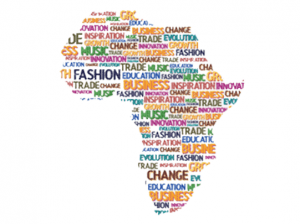 From decades of being described as a continent riddled with conflict, Africa is now taking a key place in the world with its leading economies outpacing much of the rest of the world in economic growth. The World Bank notes that Africa’s growth is set to reach 5.2 percent in 2014, with strong investment growth and household spending. Half of the region’s population is under 25 years of age, which is not lost on marketers, specifically at multinational corporations. There is also general consensus in African policy circles that we are witnessing Africa’s moment.
From decades of being described as a continent riddled with conflict, Africa is now taking a key place in the world with its leading economies outpacing much of the rest of the world in economic growth. The World Bank notes that Africa’s growth is set to reach 5.2 percent in 2014, with strong investment growth and household spending. Half of the region’s population is under 25 years of age, which is not lost on marketers, specifically at multinational corporations. There is also general consensus in African policy circles that we are witnessing Africa’s moment.
I recently sat down with Vincent Magwenya, CEO and Khadija Magardie-Bradlow, Media Director, from Magna Carta, Ketchum’s exclusive South African affiliate to talk about the myths and realities surrounding Africa, what companies need know and do to succeed, and the current state of the media landscape. Magna Carta is Africa’s leading and largest Reputation Management Consultancy operating across all key African markets and recipient of the 2013 Holmes Report African Consultancy of Year award.
In a recent discussion, you mentioned that there is not only a mobile revolution, but also a data revolution happening in Africa. What do you mean by that?
The African market presents significant opportunity for telecom and tech companies to expand their footprint. Although Internet penetration is lagging behind the rest of the world, Africa is a data-hungry continent. A growing appetite for social media, combined with increased app use means more Africans are using their handsets for more than traditional calls and messages.
Data-enabled devices are more readily available and being adopted by a growing, consumerist middle class. Many African governments have prioritized infrastructure development that expands mobile and broadband networks – the Seacom project is an example of this.
Although smartphone penetration in the continent is not as high as in other parts of the world, including Western Europe and Asia, the number of handset sales of smartphones is on the rise. Because more people are using portable devices with ‘smart features’ data traffic volumes – including services like video, file sharing, rich applications and gaming are rising in many African markets.
The 2013 Deloitte Mobile Consumer Survey predicts that mobile data traffic is expected to increase sevenfold by 2018. This presents an opportunity for network providers and carriers in the field of data provision, as the increased use of IM erodes their traditional telephony revenue bases.
How important is it for multi-national corporations to activate a CSR program when entering African countries?
Although it is seldom legislated that entering a particular market is contingent on activating a CSR program, most companies will acknowledge that active participation in social and community projects is good business practice. This type of investment is voluntary, and not regulated, it is up to the respective companies to initiate programs that advance the community in which they operate.
What is lost on many companies is that initiating a CSR activity should be in consultation with the community, and in the case of countries like South Africa, aligned to the government’s priorities such as provisions on healthcare, housing, education and environmental protection.
The reality is that a company or investor’s image is enhanced in the public when they are seen to be good corporate citizens not just in the workplace, but the community: which ultimately can translate to higher sales and lower employee turnover.
How do you see the adoption and execution of the Paid, Earned, Shared, Owned (PESO) model in Africa? What are some of the elements that dictate success?
The adoption of the PESO model is largely dependent on the state of technological access, digital and social media sophistication and the level of education in each region.
For example, South Africa, Kenya and parts of Nigeria are ripe for fully leveraging the power of converged media for corporations and brands. In South Africa the PESO model is already operational. PESO is operational to a lesser degree in other regions, although it is beginning to take off. As markets grow and reach certain levels of maturity, so does the growth of different media models.
It is worth noting that in order to harness the rapid technological changes that Africa is going through, organizations and businesses need to invest in content that is relevant and accessible for feature phones (and smartphones to a lesser degree) – because more Africans are accessing content on mobile – representing a fundamental shift away from traditional forms of media consumption.
Every country is in a different place and moving at a different pace on the media continuum. How does this play out across the African countries that are driving the economic growth of the continent?
It goes without saying that the different economies of Africa are as diverse economically as they are socially and culturally; which plays a major role in the pace of development that particular economy chooses to embark upon. So a one-size-fits-all approach definitely would not work in Africa. What may go for Angola may not go for South Sudan: and the nuances of doing business in Ghana may be completely different in another country just next door.
If you look at the east African country of Tanzania for instance: it may be next to the economic powerhouse of Kenya, but the operating climate is vastly different. The country offers a welcome and competitive climate for foreign investment in mineral exploration. Unlike Kenya though, the media is immature and less developed. For instance the concept of ‘niche’ or specialized or trade specific media doesn’t really exist here.
As a result, the same PR model applied in Kenya would not be relevant in Tanzania. Instead of soliciting publicity the traditional way, organizations have a better opportunity leveraging native advertising (sponsored content) instead. This also presents the opportunity for clients to get their targeted messages covered in the media – provided they invest the time in training and educating local media about their respective industries and what it is they do. This has positive consequences in the long run for fostering healthy and long-lasting media relationships.
When working with media, what are some key things companies need to know?
Companies wanting to enter African markets need first and foremost to bear in mind that media on the continent (except in the more advanced economies of Kenya, Nigeria, South Africa, etc.) face a number of challenges, some historical (censorship under previously repressive governments for instance, or lack of basic training due to poor levels of state education) and others contemporary (lack of rigorous media training bodies, poor infrastructure including Internet access, and lack of access to technology). This all affects the way in which the media is able to do its work, or is impacted in some way.
Each media landscape is different, as are the caliber of the journalists. In most cases, building and maintaining relationships is critical, especially during crisis management situations. Many relationship-building exercises include invitations to breakfasts, cocktails and luncheons – so are press junkets paid for by clients, although it may be slightly different in South Africa,.
Depending on the market, it may be better to focus on relationship building and stakeholder management before trying to engage the media directly.
In many markets a combination of native advertising (sponsored content) and leveraging owned media (clients own channels) is the suggested approach.
Packaging your content and messages is also important – especially in markets where the dominant media is radio and literacy levels are traditionally lower.
Any last words on how to “win” in Africa?
• Play a role in society. Otherwise you will forever be perceived as a ‘suitcase’ business.
• Leverage the tech revolution. Relative poverty does not mean Africans do not want and are not attempting to access the latest technology on the market, especially consumer goods and electronics.
• Understand that what you do is more important than what you say.
• Leverage unique emotional insights: provided by trusted PR partners on the ground.
• Behave like a challenger brand.
• Unlock the power of advocacy.
In Africa, a hurdle may also be an opportunity.


